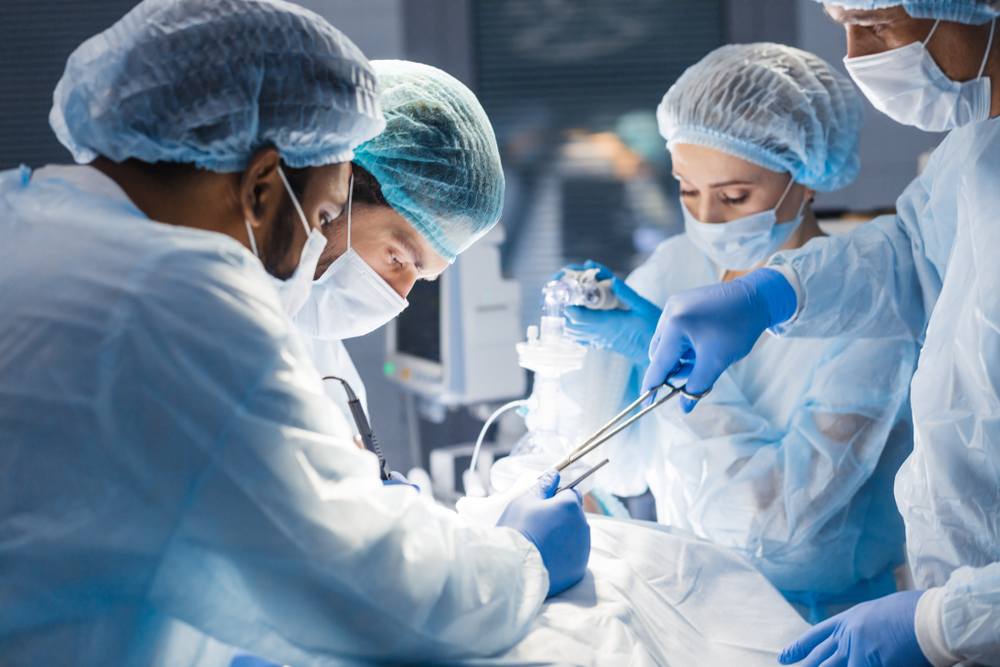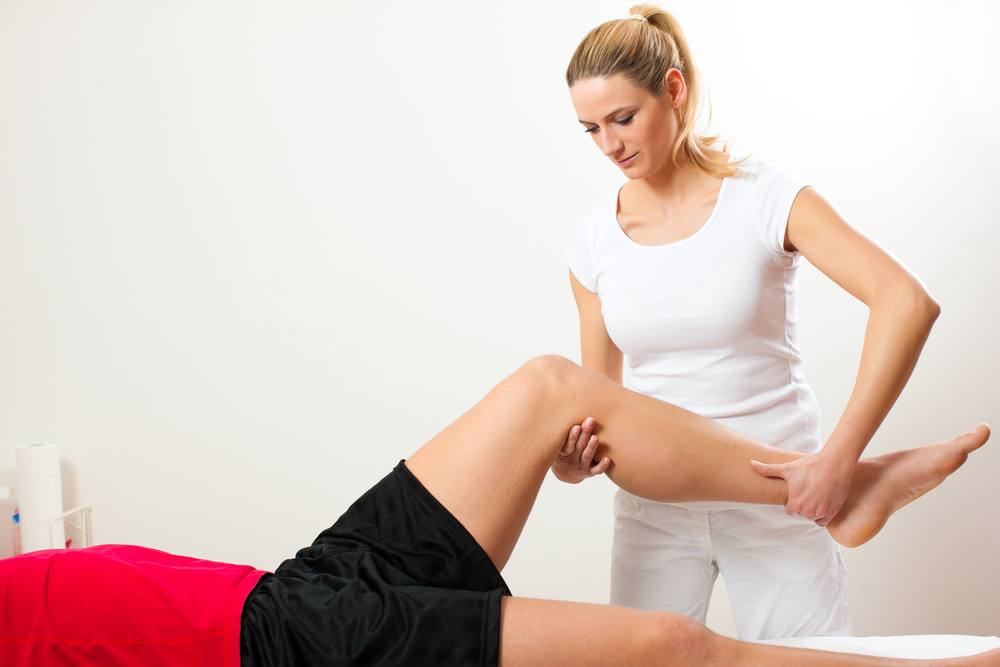 In 2019 alone, at least 2.5 million car accident injuries occurred, and many more likely went unreported. Driving is an increasingly dangerous activity, and the number of injuries grows as cars begin to implement more distracting features like touch screen pads. If you have been in a car accident, you likely experienced an injury as a result. In the immediate wake of an accident, it is important to check all parties for obvious injuries. If any injuries are discovered, even if they seem minor, you should seek medical help.
In 2019 alone, at least 2.5 million car accident injuries occurred, and many more likely went unreported. Driving is an increasingly dangerous activity, and the number of injuries grows as cars begin to implement more distracting features like touch screen pads. If you have been in a car accident, you likely experienced an injury as a result. In the immediate wake of an accident, it is important to check all parties for obvious injuries. If any injuries are discovered, even if they seem minor, you should seek medical help.
If the accident has passed but is fairly recent and you have not yet seen a doctor, you should do so soon. Many conditions and injuries may not make themselves known immediately, partly due to the body’s natural hormonal response to stressful events. The temporary rush of adrenaline can limit your ability to perceive pain.
Even if you have been cleared by your doctor and have no obvious injury, there may still be a negative impact on your life in the aftermath of a motor vehicle accident. This could be tension in the body due to stress, or it could be emotional difficulties. You may have trouble sleeping or focusing. Whatever you’re experiencing after your car accident, treatments are available to help you through.
Immediate Emergency & Urgent Care
 Even small wounds can have the potential to make big problems for the people who have them. Not only is there usually a risk of infection, but small surface injuries may actually signal more serious internal injuries. If you notice either an injury or new pain or discomfort somewhere in your body after a crash, you should visit urgent care or make an appointment to see your primary care physician as soon as possible. If the injury is one that could put you at serious risk if care is delayed, bypass urgent care and head to the emergency room immediately.
Even small wounds can have the potential to make big problems for the people who have them. Not only is there usually a risk of infection, but small surface injuries may actually signal more serious internal injuries. If you notice either an injury or new pain or discomfort somewhere in your body after a crash, you should visit urgent care or make an appointment to see your primary care physician as soon as possible. If the injury is one that could put you at serious risk if care is delayed, bypass urgent care and head to the emergency room immediately.
Some examples of injuries that require emergency care include feelings of numbness, severe pain, or large amounts of blood. If you suspect a bone fracture or concussion, those are also good reasons to visit the ER.
If nothing else, a doctor’s assessment can be one more piece of documentation to submit to an insurance company. This is especially of value in cases where you believe you are an aggrieved party and want to claim no-fault coverage.
Medication
It is not uncommon to experience some measure of pain after a car accident. The pain could be the result of bumps and bruises attained during the crash, from larger injuries, or simply tension from the ongoing stress of managing the aftermath of a car accident. The kind of pain associated with these conditions is usually manageable with over-the-counter medications. The most often recommended are non-steroidal anti-inflammatory drugs (NSAIDs), like aspirin and ibuprofen.
More significant pain may require stronger medication. Opioids are a class of medication frequently prescribed to patients with severe injuries. While they are extremely effective, it is important to follow your doctor’s instructions when taking them. People who take opioids can develop a physical dependence on them, and unfortunately, the longer you take opioids, the longer it may be before you fully recover from your injury.
Another class of medication that is common for car accident survivors is antidepressants. In fact, around 45% of people who have experienced a crash begin taking antidepressants afterward. Most of the patients who need antidepressants are struggling with the negative effects on mental health that a car accident can create, but in some cases, antidepressants are also an effective tool for managing pain.
Medical Devices and Equipment
If diagnosed with an injury that requires certain treatments, like immobilization or temporary bed rest, you may be sent home from the doctor or hospital with medical equipment. Broken bones and damage to the legs or spine may require patients to temporarily use crutches or a wheelchair, or sometimes something in between like a walker or rollator. Braces and boots are also given to those with injuries that improve with immobilization.
Some injuries may leave you disabled, either long-term or permanently. Over a million adults live with a disability caused by a car crash. In these cases, the medical devices or equipment provided to you may be more intensive. You may need a device for Augmented and Alternative Communication (AAC) to help with speech. You might require adaptations to other everyday tools, like your car, toilet, staircase, and other areas that could be tricky for someone with a disability to navigate.
Unfortunately, a lot of medical devices and equipment are prohibitively expensive. While some insurance companies have coverage for these tools, you may need to pay out of pocket for all or a portion of the cost. It is also important to think about maintenance and replacement, as some equipment, when used consistently over a long period of time, can wear out quickly.
Short-Term Hospitalization
Most injuries sustained during motor vehicle crashes are fairly minor, but sometimes, the medical team you are working with may want you to remain temporarily in the hospital. Sometimes, like in the case of internal bleeding or trauma to the head, doctors may want to monitor you to ensure that you remain stable.
If an injury has caused someone to lose consciousness or otherwise put them into critical condition, the Intensive Care Unit (ICU) may be necessary. This area of the hospital has highly trained specialists working around the clock to provide care for critically ill patients. There are usually very few visitors allowed.
Surgery
Some injuries are serious enough to warrant surgery. This can range from minimally invasive operations to more complex surgeries that require multiple surgeons and specialists in the operating room at once. Those most likely to need surgery directly after being in a car accident include:
- People who have damaged internal organs
- Those who have broken a bone so severely that hardware needs to be installed in the body for stabilization
- Those who have hurt their head and have serious trauma to the brain
Amputations are also common if a limb has been compromised, such as when someone crushes a limb during a crash. Burns or other events that occurred during the accident may also result in disfigurement. Your doctor may suggest plastic surgery to help restructure your features. Sometimes there are situations in which plastic surgery is as life-or-death as any other form of emergency surgery. For example, skin that has been burned away may need to be grafted, or else your body’s natural inner defenses against disease will be overwhelmed without the skin there as a filter for microbes.
Even similar injuries may not require the same kind of surgery. For example, damage to the spine may mean major surgery, or it may be addressed with a minimal procedure. Bone fractures can be stabilized with plates, screws, and rods. Brain surgery doesn’t always look the same, either. Every surgery depends on your individual history and needs.
Most operations require a long period of rest and rehabilitation. This period can be as short as a few days, though it could last as long as weeks or months. Being unable to work for so long can be a big financial burden on many families, and doctors are aware of this. If they recommend surgery, it is most likely because no other options are left.
Therapies
Physical therapy, occupational therapy, and alternative options like chiropractic care or acupuncture are all important aspects of the recovery process. When drastic physical trauma damages your body, therapy can help you relearn how to use those damaged parts.
Physical Therapy
 Musculoskeletal and soft tissue injuries are often the target of physical therapy, although that is not the limit by far. Physical therapists are highly trained medical experts whose work centers around developing routines of movement that meet their patients’ individual needs and circumstances. For example, physical therapy for a broken arm may target strengthening the muscles that atrophied while you wore a cast, while chronic tension in your shoulders may be treated with massage and specially designed stretches. Some more examples of treatments you can expect from a physical therapist:
Musculoskeletal and soft tissue injuries are often the target of physical therapy, although that is not the limit by far. Physical therapists are highly trained medical experts whose work centers around developing routines of movement that meet their patients’ individual needs and circumstances. For example, physical therapy for a broken arm may target strengthening the muscles that atrophied while you wore a cast, while chronic tension in your shoulders may be treated with massage and specially designed stretches. Some more examples of treatments you can expect from a physical therapist:
- Massage or electric stimulation of the affected area to reduce pain and tension as well as increase blood flow
- Manipulation of injured areas to relieve pain, reduce tension and inflammation, and prevent scarring
- Support with specialized stretches to relieve pain and increase mobility
- Customized exercise routines to target specific needs
- Training to restore your previous strength and prevent further injury
Physical therapy is most effective when you consistently spend time at home doing the exercises and stretches your therapist has taught you. With such consistency, you will eventually see results, along with improved strength, increased flexibility, and restored mobility.
Occupational Therapy
Occupational therapy will support you in either regaining your ability to complete everyday tasks or to teach you new adapted ways to handle them. The goal of occupational therapy is to help you restore any independence lost as a result of your injury and to facilitate your sense of life balance. Some forms of occupational therapy include:
- Before release from hospitalization, meeting with patients to assess needs and ensure that there are plans in place to meet any of those needs
- Implementing the safe and effective use of mobility aids and other adaptive tools
- Addressing trauma revolving around the accident or other events in your life through exposure therapy
- Planning for your return to work with supportive equipment, coping strategies for potential issues, and advocacy in dealings with your employer
- Creating and monitoring goals for managing a new disability caused by injury
Chiropractic Care
Seeing a chiropractor after a car accident injury can make a huge difference in managing pain and other after-effects of a crash. There are many benefits to seeking chiropractic care after an accident:
- Chiropractors can identify injuries that other doctors may have missed because the training that chiropractors receive helps them understand how an injury can have an impact on your body as a whole, not simply in the area where it occurred.
- Because of this holistic approach, you can be sure that a chiropractor will take reports of your pain very seriously. Chiropractors strive to provide adequate care that meets their patients’ needs.
- Chiropractic care may help you manage your pain without a need for medication or invasive treatments.
- The way that chiropractors manipulate your body’s tissues helps break up collagen, which is what creates scar tissue. Due to this, chiropractic care may reduce your scarring. That manipulation will also help your body flush out the inflammatory cells that can cause pain.
Mental Health Care
Nearly half of all people who survive a car accident will develop Post-Traumatic Stress Disorder, and the rest are at an increased risk for heightened anxiety, periods of depression, and other emotional disorders. After all, car accidents – even relatively small or harmless ones – can be terrifying and traumatic. You could walk away from a car accident without a scratch, but the event will most likely have had some impact on your emotional well-being, at least for a time.
Some people get what they need to move forward by participating in psychotherapy, which is far from limited to the form of “talk therapy” many picture when they think of therapists. It can be that, but it could be art therapy, movement therapy, the use of a trained therapy animal, and more. Patients may participate as an individual, or they may join a group or attend therapy with family. For many, participating in therapy may be enough, or they may need to supplement weekly therapy with medication, whether for anxiety, depression, or other problems.
The support each person needs to maintain emotional and mental well-being varies widely and depends on a range of factors, including personal history, current needs, and even just what works for your personality. Such support can last for life, or it can be a short-term commitment. The best mental health support is the kind that helps you and your needs.
Ongoing Support
Even after receiving treatment, there are times when care must continue permanently. Disability is not out of the question when you suffer an injury from a car accident. Many people require one or more of the above treatments for life. This can sound scary, but every one of these treatments is designed to help you find your way forward to your greatest potential. There can be a lot of hope in that.